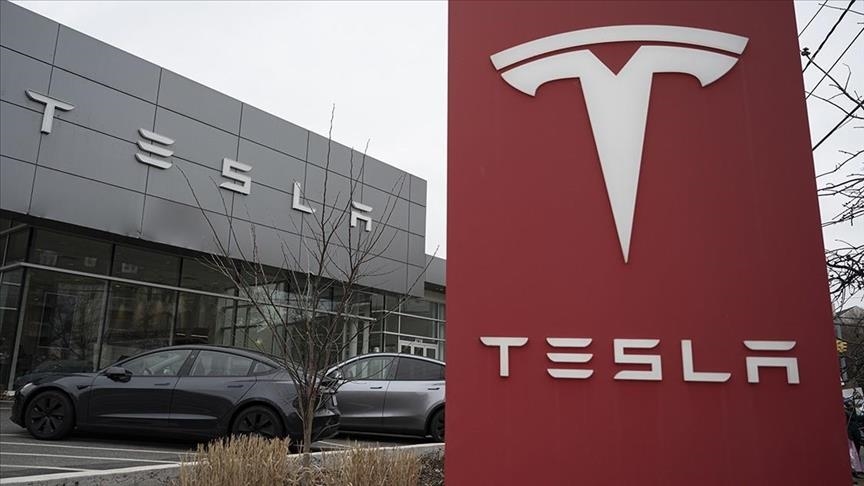Tesla’s profits down 37% in Q3 despite federal tax credit rush, sales recovery
EV firm's net income drops to $1.37 billion in 3rd quarter, even though American consumers rushed to purchase electric cars prior to expiration of $7,500 federal tax credit last month

ISTANBUL
US electric vehicle giant Tesla's net income dropped 37% year-on-year in the third quarter, despite a recovery in sales from the previous two quarters' declines and a rush by consumers to take advantage of a federal tax credit.
The firm’s net income dropped to $1.37 billion in the third quarter from $2.17 billion a year earlier, even though American consumers rushed to purchase electric cars prior to the expiration of a $7,500 federal tax credit last month.
Meanwhile, revenue amounted to $28.1 billion in the June-September period, up 12% from $25.18 billion a year earlier.
The EV firm also reported a 6% rise in automotive revenue to $21.2 billion from $20 billion during the same period last year.
The federal tax incentives for electric vehicles, which were removed as part of President Donald Trump's funding package, expired at the end of the quarter. Customers hurried to take advantage of the incentive before it expired, which pushed sales ahead into the quarter.
Automotive regulatory credit revenue dropped 44% from $739 million to $417 million during the quarter.
Additionally, rather than committing to delivering a specific quantity of electric vehicles and energy products by the year's end, Tesla said "it is difficult to measure the impacts of shifting global trade and fiscal policies on the automotive and energy supply chains, our cost structure, and demand for durable goods and related services," according to CNBC.
CEO Elon Musk and Chief Financial Officer Vaibhav Taneja alerted shareholders to the impact of increased tariff charges and the expiration of the tax credits during Tesla's most recent earnings call in July.
Even though overall sales growth has returned, Tesla's third quarter saw a persistent decline in sales in Europe, which was caused in part by customer backlash against Musk, political controversy, and competition from EV manufacturers such as Volkswagen and BYD.
After plunging at the beginning of the year, the stock has recovered and is currently up about 9% in 2025. After the release of the latest financial results, the firm's shares were down about 1.8% Wednesday in after-hours trading.






